Johnson Claims Brexit Mandate in Sweeping Conservative Victory
After three years of stalemate over the issue, voters hand the U.K. prime minister a commanding majority to take the country out of the EU. U.K. Prime Minister Boris Johnson. (Creative Commons Attribution 2.0)
U.K. Prime Minister Boris Johnson. (Creative Commons Attribution 2.0)
LONDON—Boris Johnson’s gamble on early elections paid off as voters gave the UK prime minister a commanding majority to take the country out of the European Union by the end of January, a decisive result after more than three years of stalemate over Brexit.
Johnson’s promise to “get Brexit done” and widespread unease with opposition leader Jeremy Corbyn’s leadership style and socialist policies combined to give the ruling Conservative Party 365 seats in the House of Commons, its best performance since party icon Margaret Thatcher’s last victory in 1987. Corbyn’s Labour Party slumped to 203 seats, 59 fewer than it won two years ago, vote totals showed Friday.
The results offer Johnson a new mandate to push his EU withdrawal agreement through Parliament. Since taking office in July, he had led a minority government and, after the House of Commons stalled his Brexit deal at the end of October, he called the election two years ahead of schedule in hopes of winning a clear majority.
“I will put an end to all that nonsense, and we will get Brexit done on time by the January 31 – no ifs, no buts, no maybes,” he said as supporters cheered. “Leaving the European Union as one United Kingdom, taking back control of our laws, borders, money, our trade, immigration system, delivering on the democratic mandate of the people.”
Johnson also offered an olive branch to Britons who want to remain in the EU, saying he will respect their “warm feelings” and build a “new partnership” with the bloc as “friends and sovereign equals.”
Speaking Friday outside 10 Downing Street, he pledged to end acrimony over Brexit and urged the country to “let the healing begin.” He said he would work to repay voters’ trust.
The scale of Johnson’s success also marked a stinging defeat for Corbyn, who had promised to lead Labour to victory with the “biggest people-powered campaign our country has ever seen.”
Instead, voters rejected his attempt to bridge divisions over Brexit by promising a second referendum on any deal with the EU. The vote also turned away the rest of the party’s agenda, which included promises to raise taxes on the rich, increase social spending and nationalize industries such as water delivery, railroads and the Royal Mail.
Corbyn, who spent his entire career as a backbench gadfly until unexpectedly winning a party leadership election in 2015, was criticized for silencing critics within the party and failing to root out anti-Semitism among his supporters. Centrist Labour politicians were quick to call for Corbyn to step down, though he has said he will stay on during a period of “reflection” and that an internal election to choose a new leader would take place early next year.
“Obviously, it is a very disappointing night for the party,” he said after retaining his own seat in Parliament. ”But I want to say this, in the election campaign we put forward a manifesto of hope. However, Brexit has so polarized debate it has overridden so much of normal political debate.”
Phil Wilson, the former Labour lawmaker from Sedgefield who lost his seat to the Conservatives, said blaming the party’s wipeout on Brexit was “mendacious nonsense.”
Corbyn’s leadership “was a bigger problem,” he tweeted. “To say otherwise is delusional. The party’s leadership went down like a lead balloon on the doorstep. Labour’s leadership needs to take responsibility.”
In an election where differences over Brexit cut across traditional party lines, several big names lost their seats the House of Commons.
Liberal Democrat leader Jo Swinson pledged to cancel Brexit if she were elected prime minister, but she was defeated by the Scottish National Party in her constituency north of Glasgow and resigned as party leader. Chuka Umunna was a one-time Labour Party leadership candidate, who left the party in February because of differences with Corbyn. Running as a Liberal Democrat, he lost out to the Conservatives in the cities of London and Westminster. Nigel Dodds led the Democratic Unionist Party in the House of Commons as the party supported the government in hopes of winning concessions on Brexit for Northern Ireland. He lost his Belfast North seat to Sinn Fein.
But those individual defeats may be a sign of longer-lasting shifts in the U.K.’s electoral landscape.
Johnson owes his success, in part, to traditionally Labour-voting working class constituencies in northern England that backed the Conservatives because of the party’s promise to deliver Brexit. During the 2016 referendum, many of the communities voted to leave the EU because of concerns that immigrants were taking their jobs.
Early in the campaign, pundits said the election would turn on these voters, who were dubbed the “Workington man” after the onetime steel-making community in northwestern England.
The Conservatives won Workington on Thursday by more than 4,000 votes. The constituency had supported Labour candidates since 1918, with only one short interruption in the 1970s.
Mathew Goodwin, a professor of politics at the University of Kent, said Johnson matched a bit of leaning to the left on the economy with a similar lean to the right on Brexit, migration and crime.
“Johnson, for his part, appears to have grasped one of the new unwritten laws in politics: It is easier for the right to move left on economics than it is for the left to move right on identity and culture,” he wrote on his blog.
The question now is whether the Conservatives can address the economic and social concerns of these voters and hold on to their support in future elections.
Conversely, some traditionally Conservative-supporting communities in southeastern England flipped to Labour as the pro-EU sentiments of middle class voters outweighed other issues.
One of these was the London district of Putney, home to many professionals and the starting point of the annual Oxford-Cambridge boat race. Labour won the seat by 4,774 votes on Thursday, overturning a Conservative majority of 1,554.
But the next flashpoint for U.K. politics may be Scotland, where the Scottish National Party won 48 of the 59 seats up for grabs on Thursday.
SNP leader Nicola Sturgeon delivered the landslide victory with a campaign focused on demands for a second referendum on Scottish independence. Johnson has flatly rebuffed the idea of another vote, saying Scotland already rejected independence in 2014.
But Sturgeon argues that the U.K.’s decision to leave the EU against the wishes of the Scottish people has materially changed the landscape. Some 62 percent of Scottish voters backed remaining in the EU during the 2016 referendum on membership.
She said she plans to publish a detailed democratic case next week for a transfer of power that would clear the way for a second independence vote.
“It is the right of the people of Scotland. And you, as the leader of a defeated party in Scotland, have no right to stand in the way,” she said.
Johnson’s sweeping victory in the UK will give him room to maneuver on such issues, particularly involving the fraught details of Brexit. Jim O’Neill, chairman of the Chatham House think tank, said the size of the Conservative Party victory gives it a clear mandate to execute the first stage of departing the EU by passing the withdrawal bill as desired.
“But it also gives a majority where the government can explore its future trade relationship with the EU with more time” and extends the transition period, he said ”Even more importantly, in principle, this majority gives the prime minister the leeway to be bold and reveal his true desires for both domestic and global Britain.”
__
Gregory Katz, Sheila Norman-Culp and Jo Kearney in London, and Angela Charlton, Raf Casert and Adam Pemble in Brussels contributed to this report.
___
Follow AP’s full coverage of Brexit and British politics at https://www.apnews.com/Brexit.
Your support is crucial...As we navigate an uncertain 2025, with a new administration questioning press freedoms, the risks are clear: our ability to report freely is under threat.
Your tax-deductible donation enables us to dig deeper, delivering fearless investigative reporting and analysis that exposes the reality beneath the headlines — without compromise.
Now is the time to take action. Stand with our courageous journalists. Donate today to protect a free press, uphold democracy and uncover the stories that need to be told.

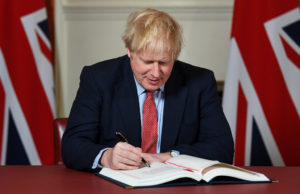
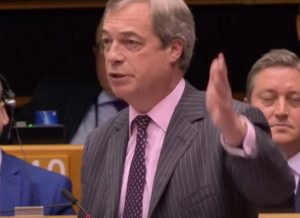
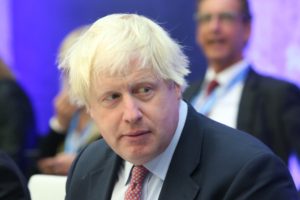
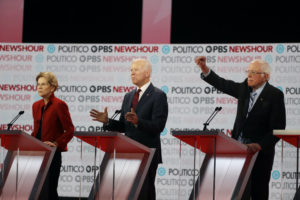
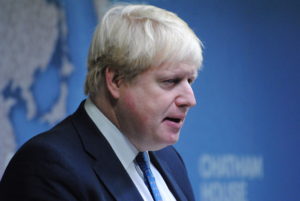
You need to be a supporter to comment.
There are currently no responses to this article.
Be the first to respond.